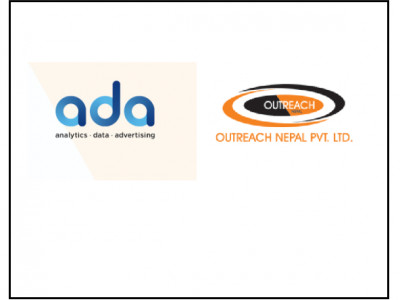Data-Driven Marketing: Analytics for smart decisions
Authored by Nitinjit Singh Bawa, Head of Marketing, Cordelia Cruises
In today's digitally-driven landscape, the era of intuition-based marketing decisions is long gone. As industries evolve and consumer behaviors become increasingly complex, businesses must adapt by embracing data-driven marketing strategies. At the heart of this transformation lies the integration of analytics into every facet of the marketing process, empowering organizations to make informed decisions and drive tangible results.
Introduction to Data-Driven Marketing
Data-driven marketing is a methodology that relies on the analysis of data to guide marketing strategies, campaigns, and decisions. It encompasses the collection, interpretation, and utilization of vast amounts of consumer data to understand preferences, predict behaviors, and personalize interactions. By leveraging insights derived from data, marketers can tailor their efforts to meet the specific needs and expectations of their target audience, thereby maximizing effectiveness and ROI.
The Role of Analytics in Marketing
Analytics serve as the backbone of data-driven marketing, providing the tools and techniques necessary to extract meaningful insights from disparate datasets. Through advanced analytics, marketers can uncover patterns, trends, and correlations that inform strategic planning, segmentation, targeting, and attribution. From descriptive analytics that summarize past performance to predictive analytics that forecast future outcomes, the spectrum of analytical capabilities enables marketers to optimize their efforts at every stage of the customer journey.
Benefits of Data-Driven Marketing
The adoption of data-driven marketing offers a myriad of benefits for businesses seeking to stay competitive in today's dynamic marketplace. By harnessing the power of data, organizations can:
- Enhance targeting and segmentation for more personalized campaigns
- Improve customer engagement and satisfaction through tailored experiences
- Optimize marketing spend and allocation by identifying high-impact channels and tactics
- Increase conversion rates and sales by delivering relevant offers and messaging
- Measure and attribute the impact of marketing activities with greater accuracy
- Adapt quickly to changing market conditions and consumer preferences
Key Data Sources in Marketing
Data-driven marketing relies on a diverse array of data sources to fuel its insights. These may include:
- First-party data: Information collected directly from customers through interactions with the brand's website, mobile apps, or other owned channels.
- Second-party data: Data shared by trusted partners or affiliates, providing additional insights into customer behavior and preferences.
- Third-party data: Aggregated data sourced from external providers, offering demographic, psychographic, and behavioral information on broader audience segments.
- Digital touchpoints: Data generated from online interactions such as website visits, social media interactions, email opens, and ad clicks.
- Offline sources: Data from offline channels like in-store purchases, call center interactions, and physical events.
Analytics Techniques and Tools
Depending on the task at hand, a variety of analytics techniques and tools can be used to support data-driven marketing initiatives. Some of them are:
- Descriptive analytics: Summarizes historical data to provide insights into past performance and trends.
- Predictive analytics: Utilizes statistical algorithms and machine learning models to forecast future outcomes and trends.
- Prescriptive analytics: Recommends actions and strategies based on predictive insights, guiding decision-making processes.
- Data visualization: Transforms complex data into visually compelling charts, graphs, and dashboards for easier interpretation and communication.
- Marketing automation platforms: Streamline campaign execution, audience segmentation, and lead nurturing processes, while also providing robust analytics capabilities.
Challenges and Considerations
Despite its potential, implementing a data-driven marketing approach comes with its own set of challenges and considerations. These may include:
- Data quality and accuracy: Ensuring that the data collected is reliable, consistent, and free from errors or biases.
- Privacy and compliance: Adhering to regulations such as GDPR and CCPA to protect consumer privacy and data rights.
- Skills and talent: Building a team with the necessary expertise in data analysis, statistics, and marketing strategy.
- Integration and interoperability: Connecting disparate data sources and systems to create a unified view of the customer journey.
- Culture and mindset: Fostering a culture that values data-driven decision-making and encourages experimentation and innovation.
Building a Data-Driven Culture
To truly unlock the potential of data-driven marketing, organizations must cultivate a culture that prioritizes data literacy, experimentation, and collaboration across departments. This entails:
- Investing in employee training and development to build skills in data analysis and interpretation.
- Encouraging a test-and-learn mentality that embraces failure as a stepping stone to innovation.
- Breaking down silos between marketing, IT, and other functional areas to facilitate data sharing and collaboration.
- Recognizing and rewarding individuals and teams that demonstrate a commitment to data-driven decision-making.
Looking ahead, the future of data-driven marketing holds immense promise for organizations that are able to adapt and innovate. Key trends and opportunities include:
- AI and machine learning: Harnessing the power of AI and machine learning algorithms to automate and optimize marketing processes, from personalization to content creation.
- Predictive analytics: Advancements in predictive modeling techniques will enable more accurate forecasting of customer behavior and campaign performance.
- Omnichannel marketing: Integrating data from across online and offline channels to create seamless, personalized experiences for consumers.
- Privacy-enhancing technologies: Leveraging blockchain, differential privacy, and other technologies to protect consumer data while still deriving valuable insights.
- Ethical marketing practices: Prioritizing transparency, consent, and responsible data usage to build trust and credibility with consumers.
In conclusion, data-driven marketing represents a paradigm shift in how businesses approach marketing and customer engagement. By leveraging analytics to inform decision-making, organizations can unlock new levels of efficiency, effectiveness, and innovation. However, success in this endeavor requires a concerted effort to overcome challenges, build a data-driven culture, and embrace emerging trends and technologies. By doing so, businesses can position themselves for sustained growth and competitive advantage in an increasingly data-driven world.
DISCLAIMER: The views expressed are solely of the author and Adgully.com does not necessarily subscribe to it.













Share
Facebook
YouTube
Tweet
Twitter
LinkedIn